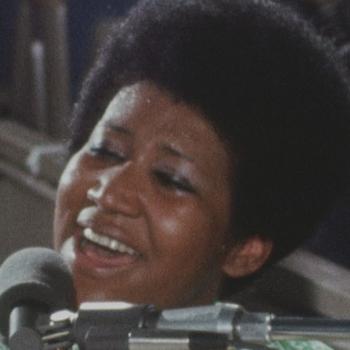
If you grew up in evangelical circles, chances are you’re familiar with wars over worship styles.
My dad was a part-time worship leader at the church we attended in my teens, and he worked hard to provide a steady balance of beloved hymns and contemporary praise. As a result, he received criticism from all sides. Those who loved hymns grumbled about the drums and guitars. Those who wanted the latest choruses complained when he trotted out the stuffy old songs.
It’s an issue churches still grapple with, as evidenced by the number of congregations that still split their Sunday worship services into separate ones for contemporary and traditional music. Rather than engage older members’ complaints about loud music or risk losing a younger generation over hymnals, they’ve segregated Sunday morning. While this might prevent people from leaving in the short term, in the long run, it’s harmful to congregations’ spiritual growth.
What the Bible says about worship services
The Bible doesn’t say a ton about worship styles. Psalm 33:2 seems to be open to a variety of instruments, and the overall book itself encompasses a variety of song styles, from praise to lament. But there isn’t a passage that suggests music with a fast beat brings congregations closer to hell or that a song has to be 50 years old before it has applicable truth.
When the Samaritan woman asked Jesus about worship styles, she broached the topic in order to change the subject from her marital status. Jesus gave no answer about which mountain was more appropriate for worship. Instead, he talked about the importance of spirit and truth. He was less concerned about the sound or process for worship and more with the state of worshippers’ hearts.
Which seems to be the theme through Scriptures. In Hosea, God says the state of the heart is more important to Him than sacrifices. Amos says that God hates worship that lets process and practicality supersede penitence and compassion. When members whine about worship styles, maybe the real question is what heart issue is being avoided.
Tradition for an ephemeral culture
Divided worship services seem to miss the point of gathering together as a body. Diversity, not uniformity, is what Paul focuses on when speaking of the church. A church willing to segregate in order to give congregation members what they want is going to fail to supply what those members actually need. In Christ, we come together because our strengths and weaknesses complement each other.
I once heard a pastor say that young people needed to come to church and hear the old hymns and creeds because they need to know they are part of something larger than themselves. In a culture where everything is ephemeral, they need roots. They yearn to feel part of a tradition that existed before them. The job of the older generation is to pass on the practices that have sustained their souls.
It’s why I tend to roll my eyes when churches ape the latest fads. There should be an element of church that isn’t trendy, because the truths we believe are timeless. For a generation constantly at risk of distraction by the latest tweet or outrage, the old hymns and the sacraments provide a way to let them know they are part of a tradition that existed before them and will still be here when they are gone.
Passing the baton
Likewise, new praise songs, innovative worship practices and new perspectives on old truths provide a way for the older generations to see that their tradition is being passed on. A congregation that only sings “Amazing Grace” and “Old Rugged Cross” from a hymnal risks worship turning obligatory. A church that also incorporates new songs and finds ways for younger believers to add to what’s come before is one that will create a lasting heritage.
As I get older, it’s easy for me to get weary in my Christian walk. I’ve lived with these words and these songs for more than 40 years now. Does it do any good? Is it just empty nostalgia, something I just do because it’s the way we’ve always done this? When I hear new songs from young believers, see my children incorporate Jesus into their discussions, and watch old truths processed in new ways, it confirms that Christ’s message continues to be vital.
The Church is a living organism, and it’s only healthy when its members contribute to each others’ needs. For the teenager looking for roots in a constantly shifting culture, the old hymns promise stability and a link to something bigger. For the senior at the end of their life who wonders whether they ran the race in vain, new songs by people who pick up the baton and run the race provide encouragement. The churches that thrive aren’t the ones that have traditional services or contemporary ones. They’re churches that simply offer a service, and allow everyone to contribute.












